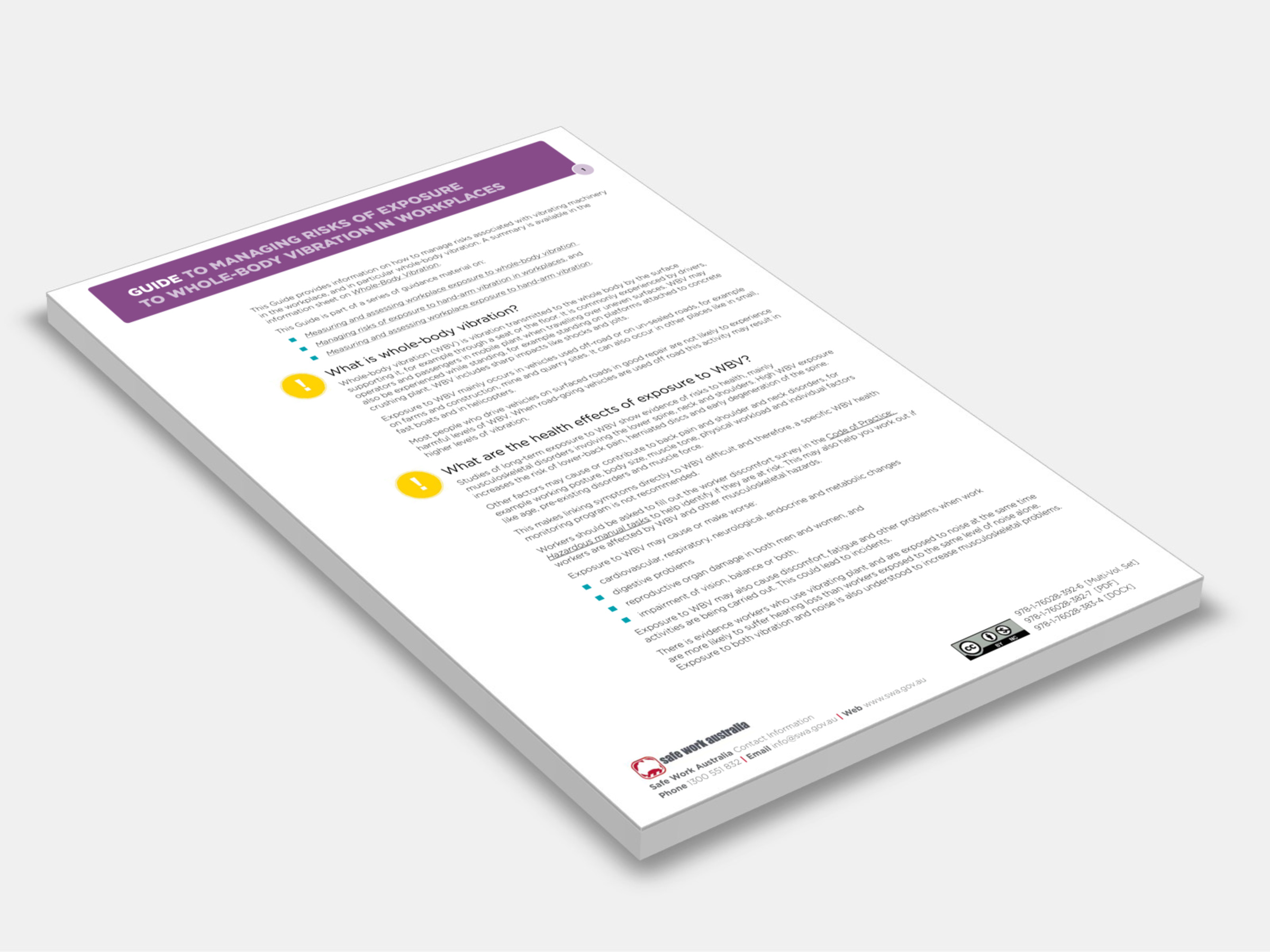
Type
Publisher
Safe Work Australia
Publisher
Safe Work Australia
Version:
2016.
(Current)
Short Description
Provides information on how to manage risks associated with vibrating machinery in the workplace, and in particular whole-body vibration.
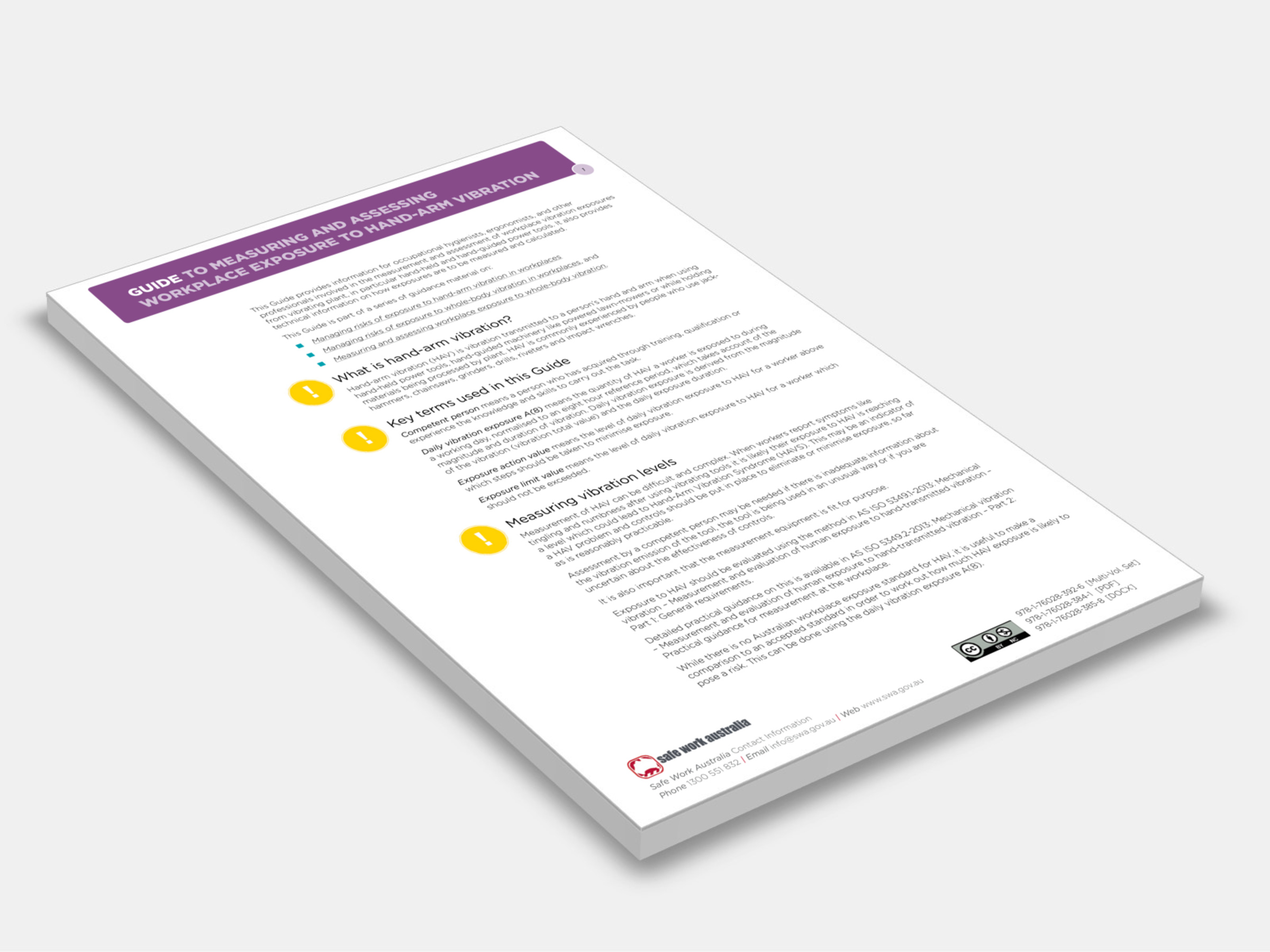
Type
Publisher
Safe Work Australia
Publisher
Safe Work Australia
Version:
2016.
(Current)
Short Description
Provides information for occupational hygienists, ergonomists, and other professionals involved in the measurement and assessment of workplace vibration exposures from vibrating plant, in particular hand-held and hand-guided power tools.
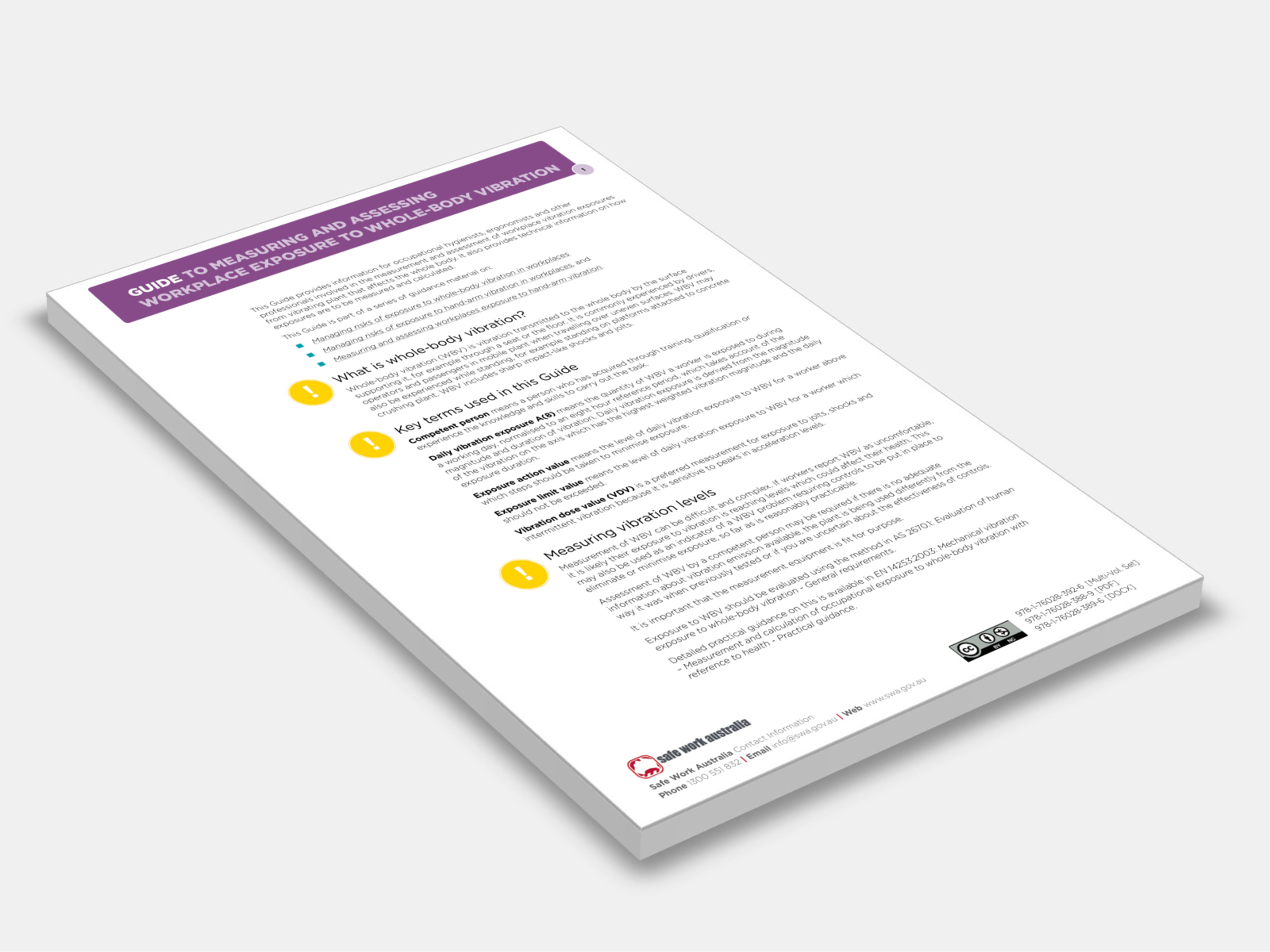
Type
Publisher
Safe Work Australia
Publisher
Safe Work Australia
Version:
2016.
(Current)
Short Description
Provides information for occupational hygienists, ergonomists and other professionals involved in the measurement and assessment of workplace vibration exposures from vibrating plant that affects the whole body.
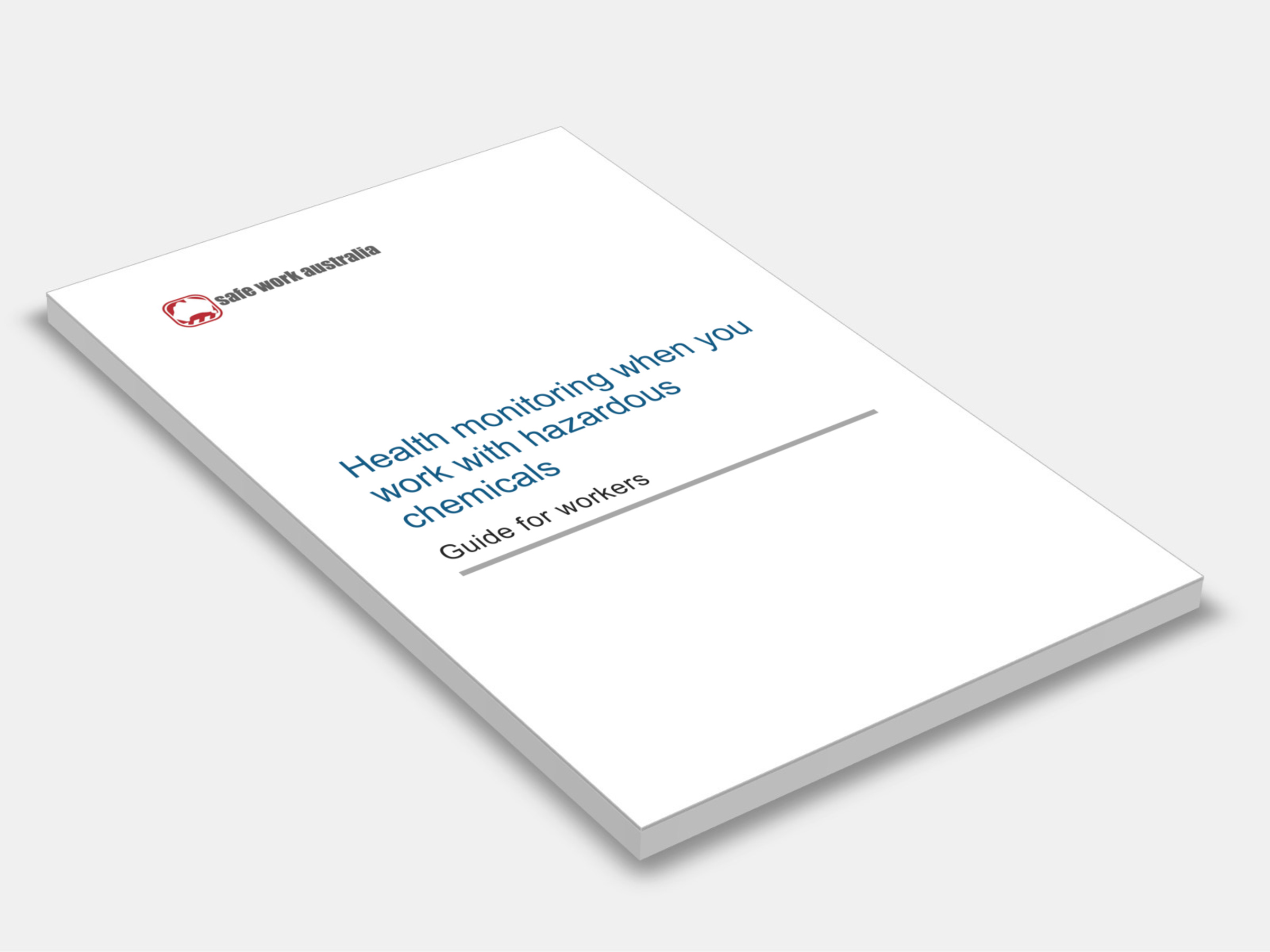
Type
Publisher
Safe Work Australia
Publisher
Safe Work Australia
Version:
2020.
(Current)
Short Description
If you are a worker who works with hazardous chemicals, this guide is for you; it explains what you and your PCBU must do to monitor your health and keep you as safe as possible.
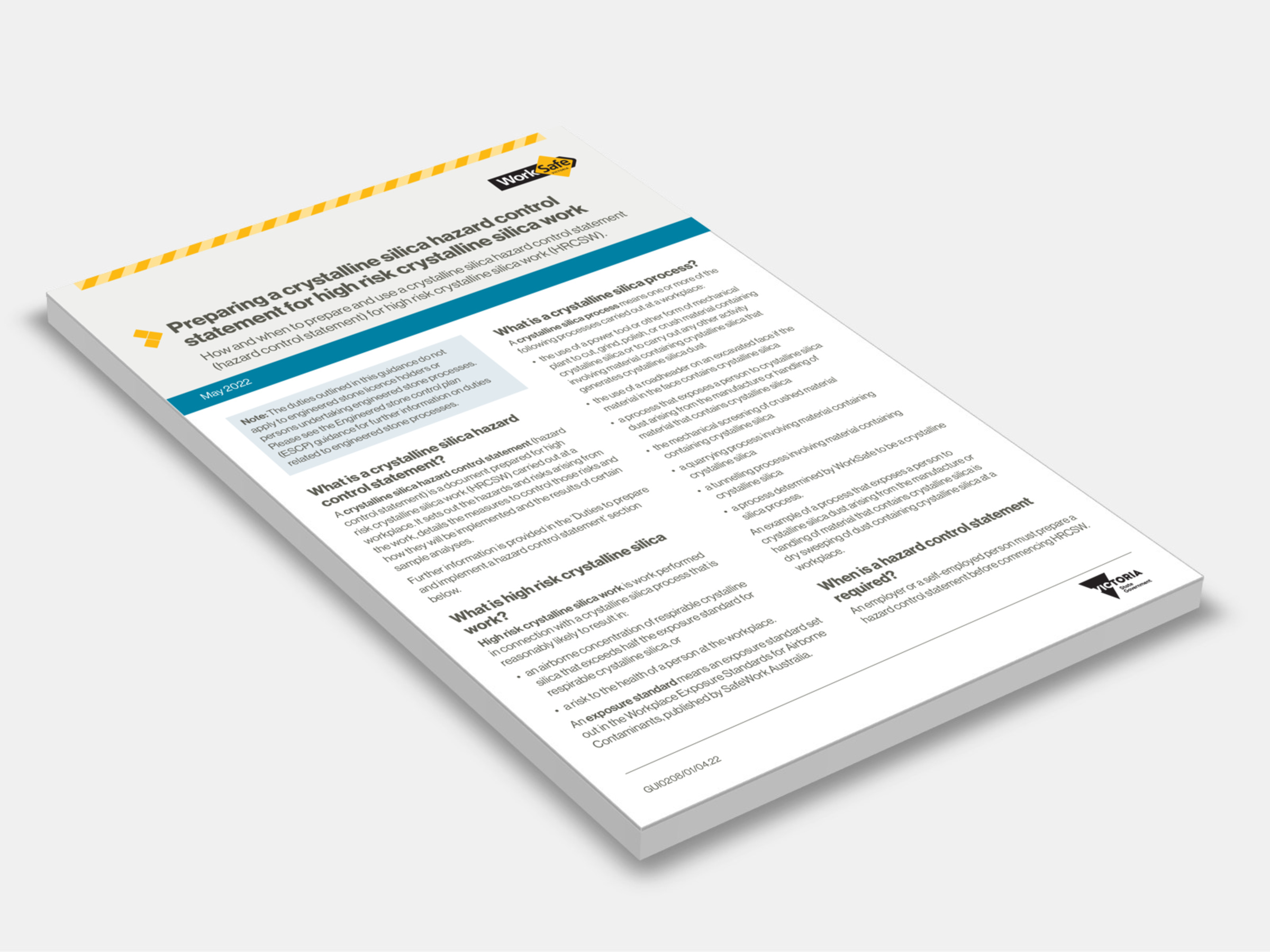
Type
Publisher
WorkSafe Victoria
Publisher
WorkSafe Victoria
Version:
2022.
(Current)
Short Description
How and when to prepare and use a crystalline silica hazard control statement (hazard control statement) for high risk crystalline silica work (HRCSW).
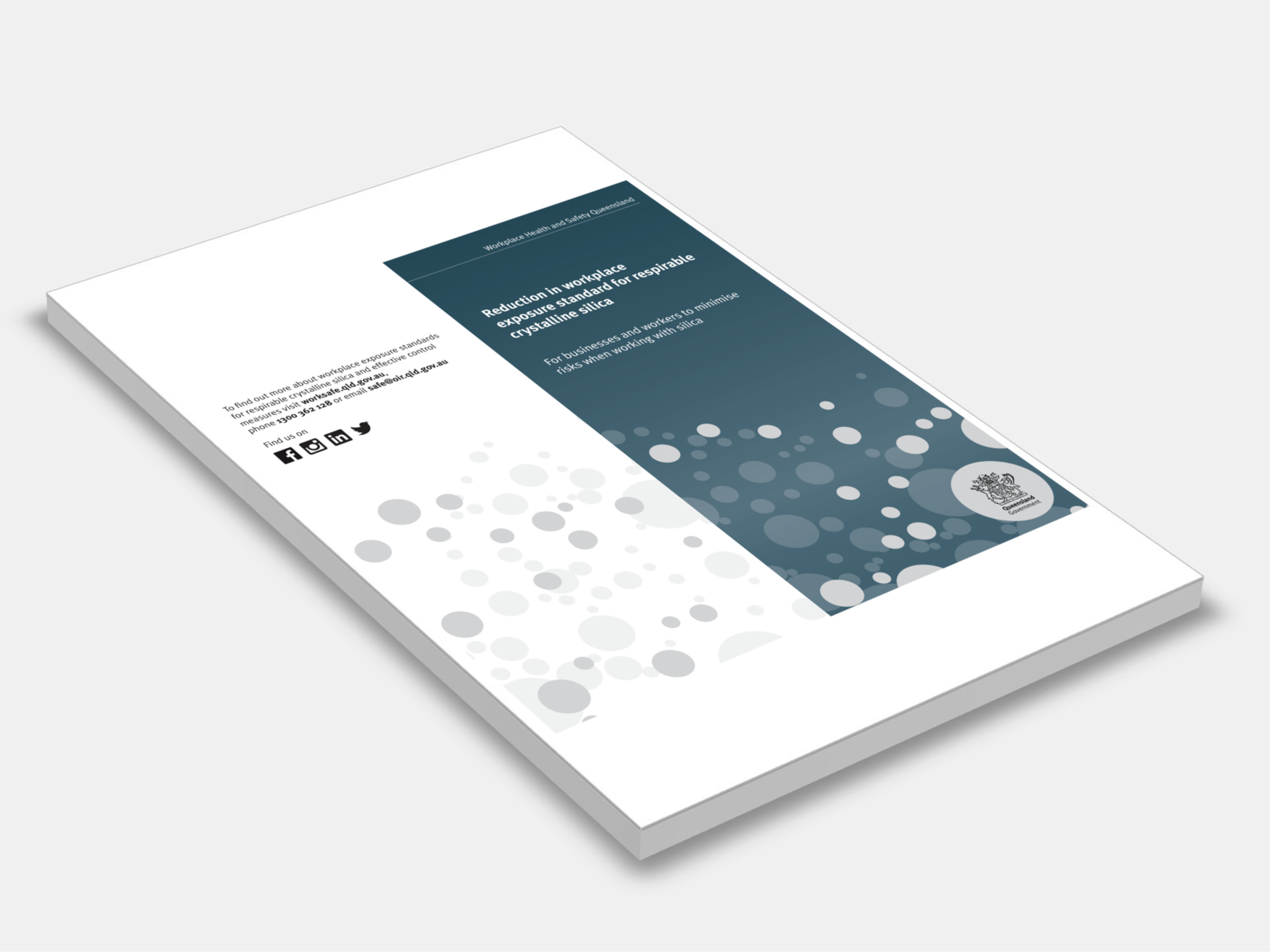
Type
Publisher
Workplace Health and Safety Queensland
Publisher
Workplace Health and Safety Queensland
Version:
2020.
(Current)
Short Description
The national workplace exposure standard for respirable crystalline silica has been halved from an eight hour time-weighted average airborne concentration of 0.1 milligrams per cubic metre (mg/m3) to 0.05 mg/m3; this new workplace exposure standard takes effect in Queensland from 1 July 2020.
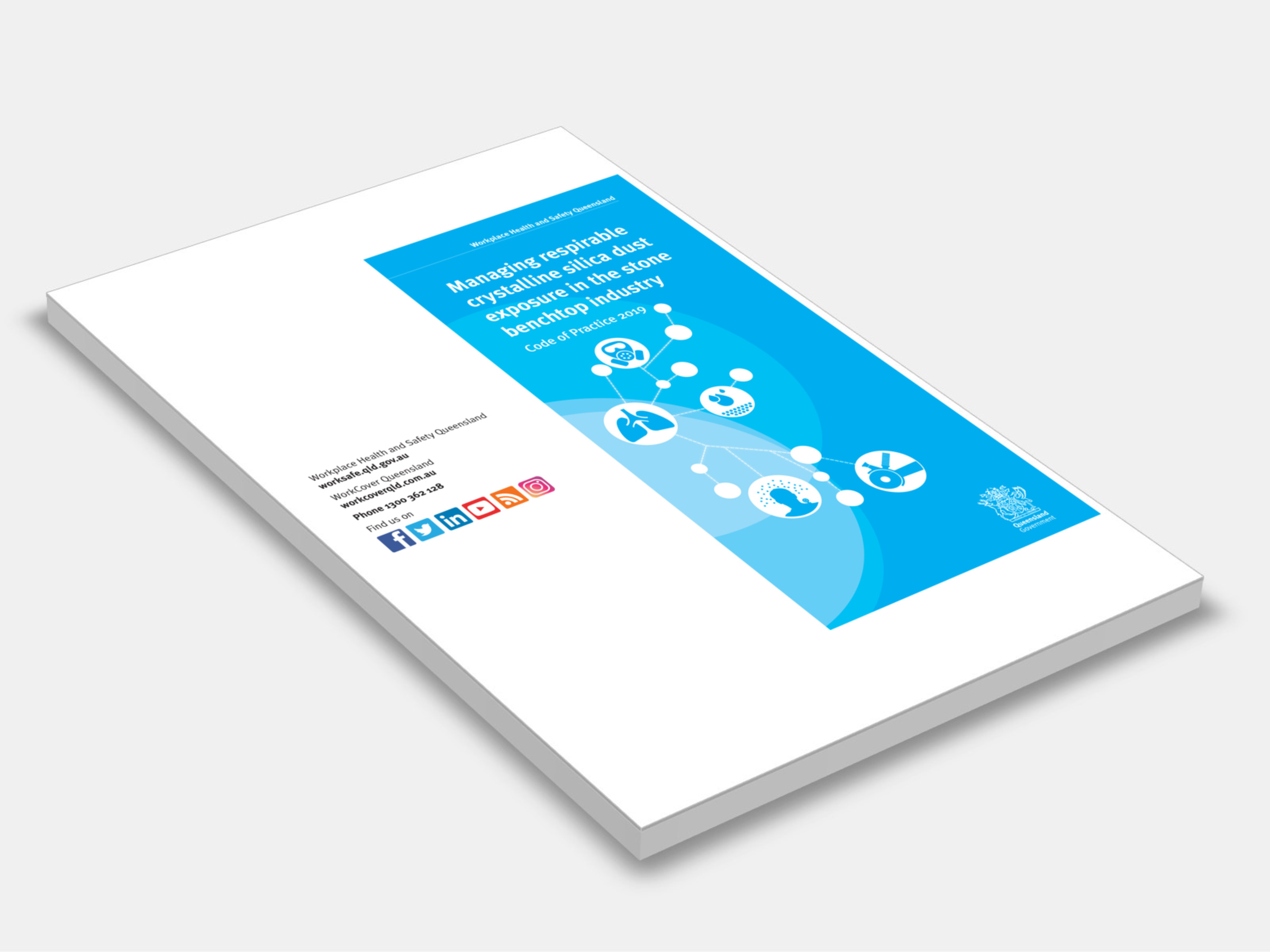
Type
Publisher
Workplace Health and Safety Queensland
Publisher
Workplace Health and Safety Queensland
Version:
2019.
(Current)
Short Description
Silicosis is preventable by using proper controls to eliminate or minimise expo sure to respirable crystalline silica dust in the workplace.
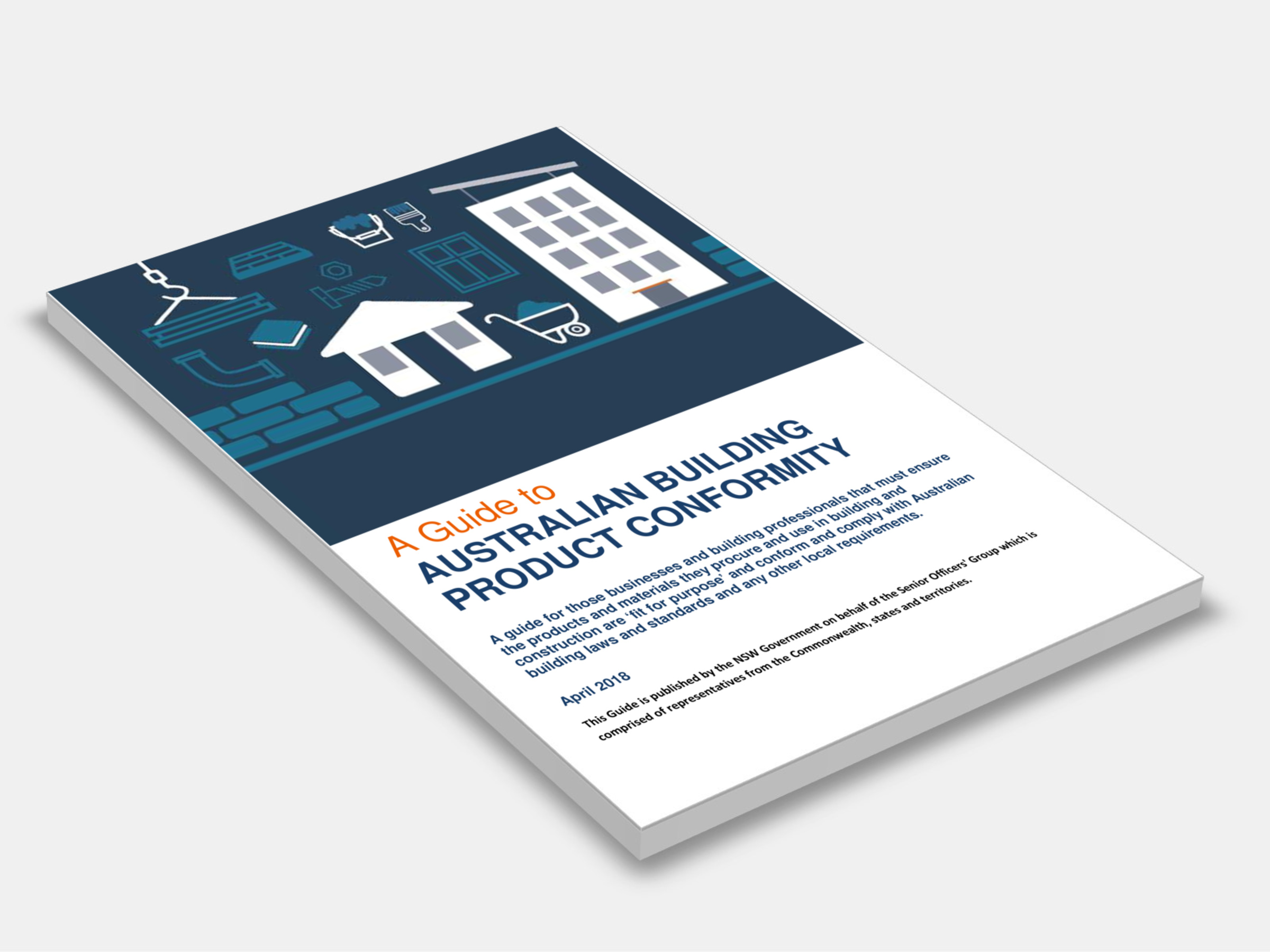
Type
Publisher
Australian Building Codes Board
Publisher
Australian Building Codes Board
Version:
2018.
(Current)
Short Description
A guide for those businesses and building professionals that must ensure the products and materials they procure and use in building and construction are ‘fit for purpose’ and conform and comply with Australian building laws and standards and any other local requirements.
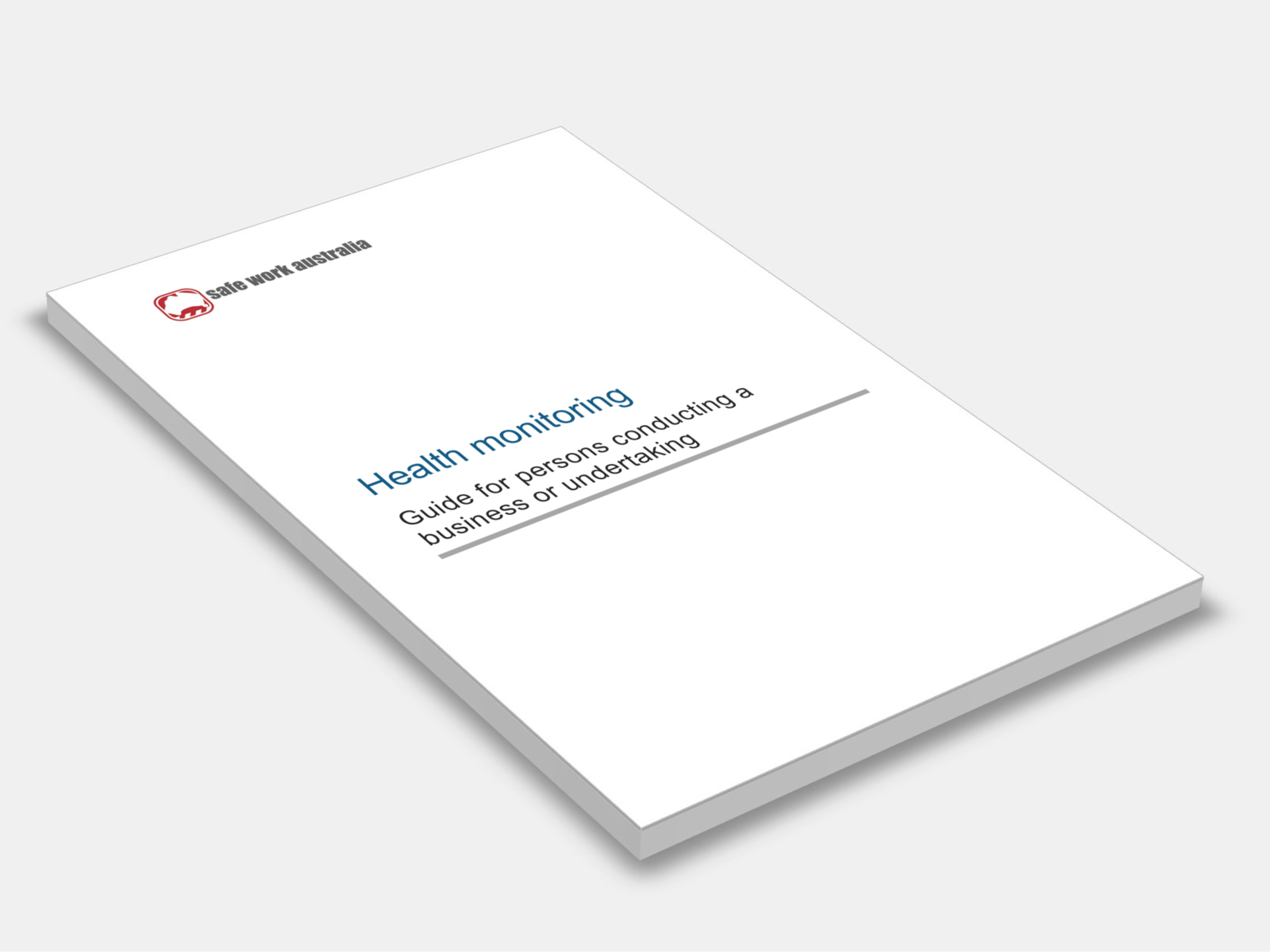
Type
Publisher
Safe Work Australia
Publisher
Safe Work Australia
Version:
2020.
(Current)
Short Description
This guide will help you to understand your duties as a PCBU to provide health monitoring for your workers; it will assist you to comply with your duties under the model WHS laws, but should not be relied on in the place of the full text of those laws.
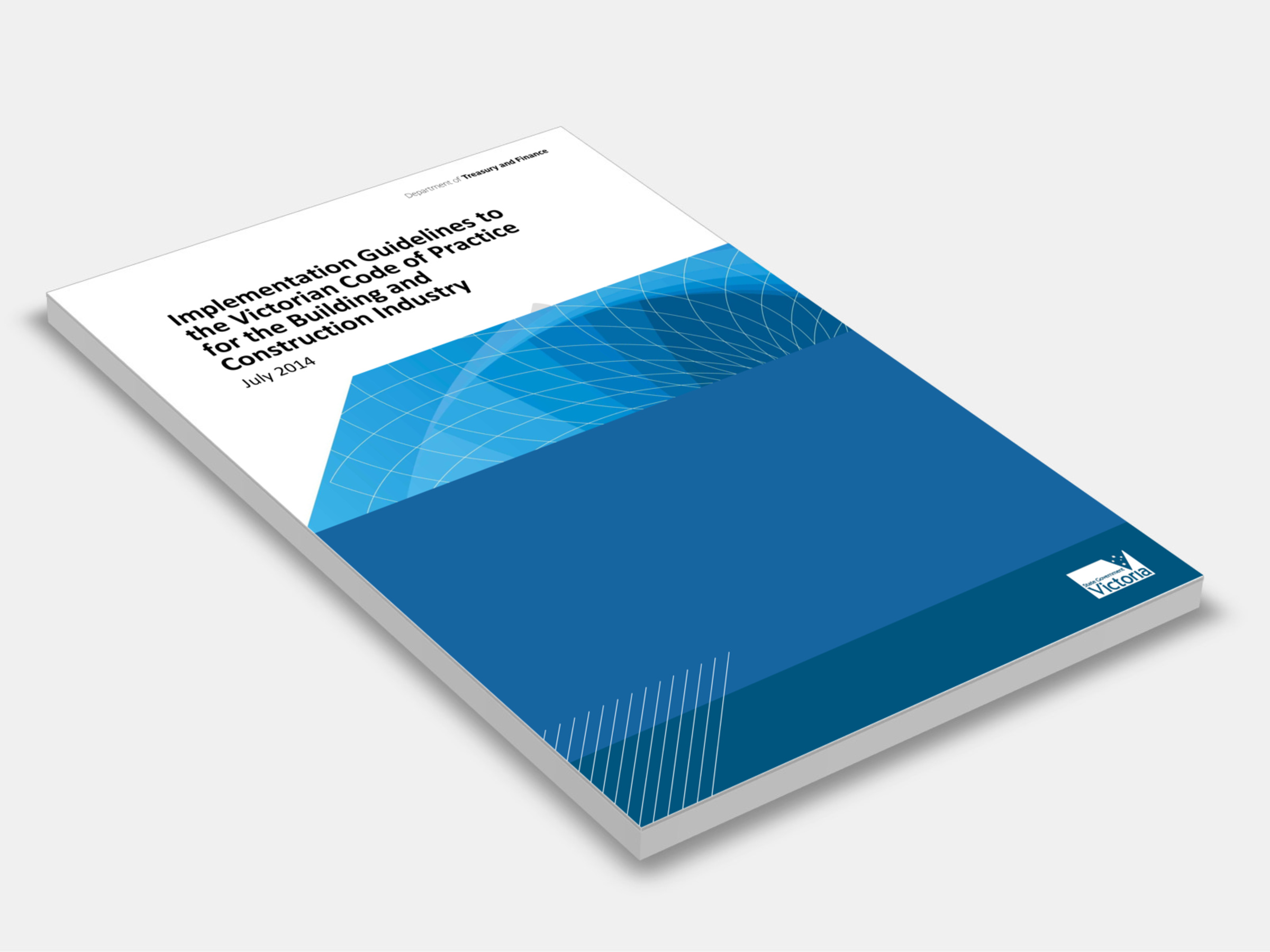
Type
Publisher
Victorian Government
Publisher
Victorian Government
Version:
2014.
(Available Superseded)
Short Description
These Implementation Guidelines (Guidelines) have been developed to further assist in the achievement of the objectives of the Victorian Code and in particular, the industrial relations, OHS&R and workforce reform elements as adopted from the National Code.